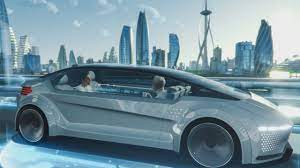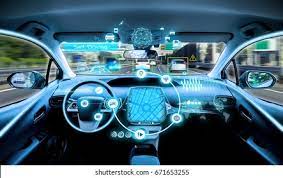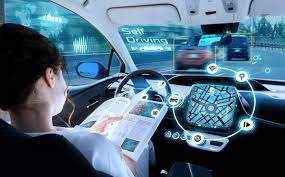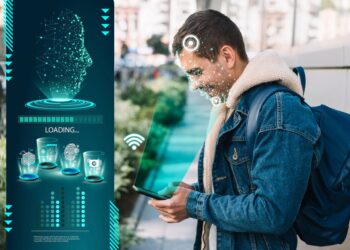The Future of Transportation: Autonomous Vehicles and Beyond
In the last few decades, transportation has undergone significant transformations with the advent of new technologies. However, the biggest disruption to transportation is yet to come, as autonomous vehicles (AVs) promise to revolutionize the way we move around. But what exactly are AVs, and how will they transform transportation?
AVs are self-driving vehicles that use sensors, cameras, and artificial intelligence (AI) to navigate roads and make decisions without human intervention. They have the potential to reduce accidents caused by human error, ease traffic congestion, and lower emissions by optimizing driving patterns. However, AVs also raise a host of ethical, legal, and technical challenges that need to be addressed before they become widely adopted.
The first challenge is developing the technology to make AVs safe and reliable. While AVs have made significant progress in recent years, there are still issues with sensors, decision-making algorithms, and software that need to be resolved. Safety is paramount, and AVs must be able to handle unexpected situations, such as sudden lane closures, accidents, or inclement weather.

The second challenge is addressing the ethical implications of AVs. For example, in situations where an AV must choose between protecting its passengers or avoiding harm to other road users, what should it do? Should AVs prioritize the safety of their occupants, or should they minimize harm to all parties involved? Similarly, how should AVs be programmed to handle moral dilemmas such as whether to prioritize the lives of pedestrians or passengers in case of an accident?
The third challenge is legal. Who is responsible for accidents involving AVs? Should it be the manufacturer, the software provider, or the vehicle owner? How will liability be determined if multiple parties are involved? The legal framework for AVs is still evolving, and it will require close collaboration between governments, manufacturers, and other stakeholders to ensure that regulations are adequate and fair.
Despite these challenges, AVs hold great promise for the future of transportation. One potential benefit is increased mobility for people who are currently unable to drive due to age, disability, or other reasons. AVs could provide a safe and reliable mode of transportation for these individuals, improving their quality of life and enabling them to remain independent.
Autonomous Vehicles
Another potential benefit of AVs is improved traffic flow and reduced congestion. AVs can communicate with each other and with traffic infrastructure, allowing for smoother and more efficient driving patterns. This could lead to a reduction in travel time and lower fuel consumption, ultimately benefiting the environment.
AVs also have the potential to change the way we think about car ownership. Instead of owning a personal car that sits idle for most of the day, individuals could use AVs on demand, paying for their use only when needed. This could lead to a reduction in the number of cars on the road, freeing up space and reducing emissions.
However, the future of transportation goes beyond AVs. There are several other emerging technologies that could transform the way we move around.

One such technology is hyperloop, a high-speed transportation system that uses magnetic levitation to propel pods through vacuum-sealed tubes. Hyperloop has the potential to travel at speeds of up to 700 miles per hour, reducing travel time between cities to a matter of minutes. This could revolutionize long-distance transportation and enable people to live further from their workplaces without sacrificing commuting time.
Another emerging technology is vertical take-off and landing (VTOL) aircraft, also known as flying cars. VTOL aircraft could provide a new form of transportation for people who need to travel short distances quickly, such as in urban areas. They could also be used to transport goods or emergency services to areas that are difficult to reach by road.
In addition, there are several other transportation technologies that are already in use or in development, such as electric and hybrid vehicles, hydrogen fuel cell vehicles, and drones for transportation and delivery. These technologies offer a more sustainable and efficient mode of transportation, reducing emissions and dependence on fossil fuels.
Autonomous Vehicles
Electric and hybrid vehicles are becoming increasingly popular as battery technology improves and charging infrastructure expands. These vehicles offer a more environmentally friendly alternative to traditional petrol and diesel vehicles, with lower emissions and lower operating costs over time.
Hydrogen fuel cell vehicles offer another potential solution for sustainable transportation. These vehicles use hydrogen gas to power an electric motor, emitting only water as a by-product. While hydrogen fuel cell vehicles are not yet widely available, they offer a promising alternative to traditional vehicles that rely on fossil fuels.
Drones are also being used for transportation and delivery in some parts of the world. They offer a quick and efficient way to transport goods, especially in areas that are difficult to access by road. They also have the potential to reduce traffic congestion and emissions from delivery vehicles.
Autonomous Vehicles
In addition to these emerging technologies, transportation is also being transformed by digitalization and the sharing economy. Ride-hailing services such as Uber and Lyft have disrupted traditional taxi services, offering more convenience and affordability to passengers. Car-sharing services such as Zipcar and Car2Go offer a more flexible alternative to car ownership, allowing individuals to use a car only when they need it. These services have the potential to reduce the number of cars on the road, freeing up space and reducing emissions.
In conclusion, the future of transportation is exciting and full of potential. Autonomous vehicles offer a promising solution to many of the challenges we face in transportation today, including safety, congestion, and emissions. However, there are still significant challenges that need to be addressed before these vehicles can become widely adopted.
Autonomous Vehicles Technologies
There are several other emerging technologies that could transform the way we move around, including hyperloop, VTOL aircraft, electric and hydrogen fuel cell vehicles, and drones. These technologies offer a more sustainable and efficient mode of transportation, reducing emissions and dependence on fossil fuels.
Digitalization and the sharing economy are also transforming transportation, with ride-hailing and car-sharing services offering more convenience and affordability to passengers. These services have the potential to reduce the number of cars on the road, freeing up space and reducing emissions.
The future of transportation is not just about technology, but also about collaboration and innovation. Governments, manufacturers, and other stakeholders must work together to address the challenges of adopting new transportation technologies and to create a sustainable and efficient transportation system for the future.
















